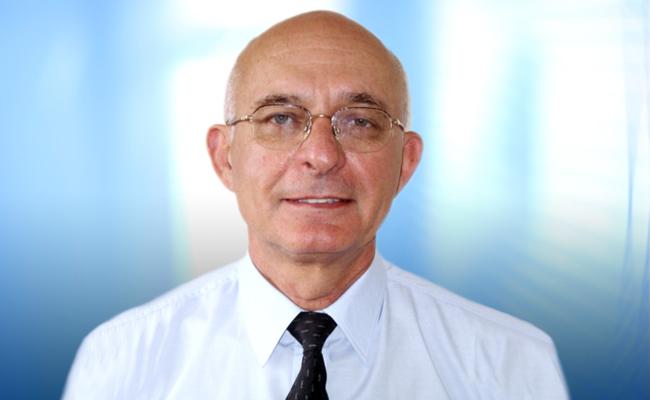Tetra Tech's Dr. Mark Wilf Discusses the Role of Reclaimed Water in Supporting Sustainable Water Supplies
Discussing the role of reclaimed water in supporting sustainable water supplies

Dr. Mark Wilf, Tetra Tech’s director of membrane technology services, is a globally recognized expert on membrane applications. He provides expertise to the engineering and scientific community worldwide and participates in professional forums defining future directions for membrane technology and application development. Mark joined Tetra Tech in 2005 and specializes in reverse osmosis, nanofiltration, ultrafiltration, and microfiltration technologies applied for water desalination, potable water treatment, and industrial and municipal wastewater reclamation.
Mark actively reviews research projects and publications as a member of the editorial board of the Desalination Journal, as an advisory expert to the Middle East Desalination Research Center, and as a peer reviewer to several journals on water treatment. He regularly contributes to professional journals, has written chapters on membrane technology for several books, and recently completed a guidebook to membrane desalination technology. Mark completed graduate studies in chemistry and Technion Technology Institute in Haifa, Israel.
What is water reuse?
In municipal applications, water reuse refers to a process of advanced treatment of secondary municipal effluents to produce water of a potable quality. The treatment process typically consists of membrane filtration, followed by reverse osmosis. The reverse osmosis permeate is treated with advanced oxidation process (AOP), which is an addition of strong oxidant and ultraviolet radiation to decompose remaining micropollutants. The water produced, after the addition of a disinfectant, is injected into a potable water aquifer, which is then pumped as potable water after a few months of residence time. At some locations, the disinfected water is added directly to the potable water reservoirs.
How reliable is the water reuse process as an additional source of potable water supply?
The water reuse process is reliable due to the application of robust treatment technologies and the maintenance of regulatory safeguards to assure the quality of the produced water. The process of reclaiming wastewater to potable water has a long history of successful operation. Each component of the process—membrane filtration, reverse osmosis, and AOP—has a multiyear record of reliable performance.
In the United States, advanced wastewater reclamation began with the opening of Water Factory 21 in Orange County, California, as a 5 million-gallon-per-day (MGD) (18.925 m3/d) facility in 1975. The current system capacity is 100 MGD (378,500 m3/d) and expanding to 130 MGD (492,000 m3/d). Since startup, the potable water quality has always met strict regulatory limits. It is well-known that water produced through advanced reclamation processes has lower concentration of potentially harmful contaminants than the concentration levels in the water supplied to California from the Colorado River. The same high standards of potable water quality consistently are maintained in other wastewater reclamation plants in the United States and other countries.
Also, considering the reliability of potable water supply, the operation of a wastewater reclamation facility is less affected by potential ruptures of water conveying lines due to earthquakes or stoppages of operation due to algal blooms.
What limits acceptance of reclaimed water as a source of potable water in the United States and other countries?
In addition to common constraints of any large water treatment project, another major constraint is negative public perception and concerns regarding the quality of potable water originating from a wastewater source. The local government, aware of this issue, usually conducts a public outreach program before project implementation and during plant operations. It is common to include a water education center in the wastewater treatment plant where the public can learn about the treatment process and quality assurances being followed. In most instances, a well conducted public outreach program is effective in changing public perception and creating broad acceptance of this new water source.
How is Tetra Tech supporting clients as they plan for the projected future development of wastewater reclamation?
Continued population growth increases water demand and affects the quality of natural water sources. Additionally, improved analytical methods of testing water quality increases detection of micropollutants in natural water sources. In the future, we can expect the treatment processes applied today to reclaimed wastewater to be applied to treat water from natural sources to assure the safety of potable water. These future conditions will blur public perception of differentiation between different water sources and will reduce cost differentials between water from natural sources and water produced through advanced reclamation processes.
Tetra Tech has extensive experience with numerous wastewater reclamation projects, working as project consultant, being part of the systems’ construction team and/or being involved in plant operations. Tetra Tech’s engineers follow the development of new treatment technologies closely and, in some instances, are taking part in the development of these new processes. In each new wastewater reclamation project, Tetra Tech’s engineers have worked hard to optimize the process and improve economics and reliability within the framework of regulatory constraints.

